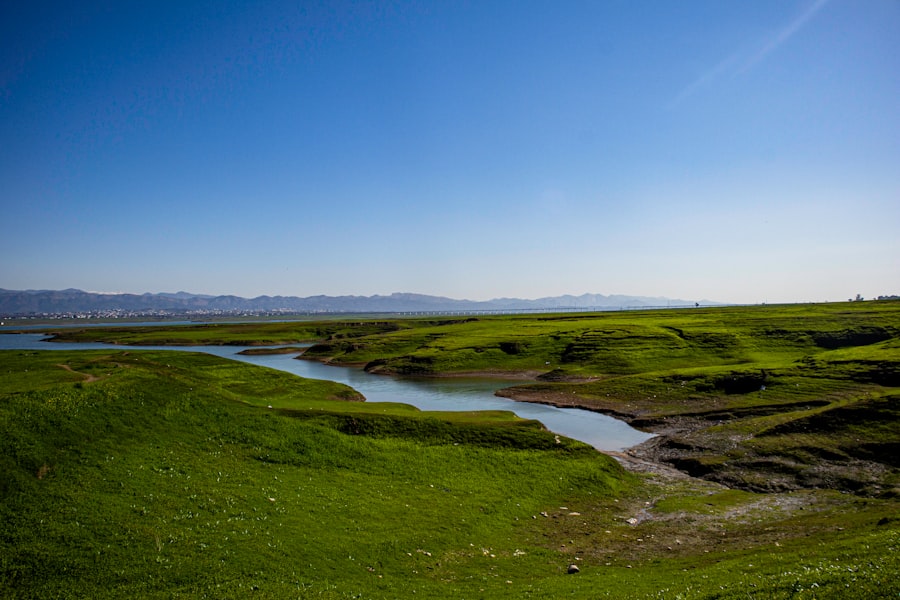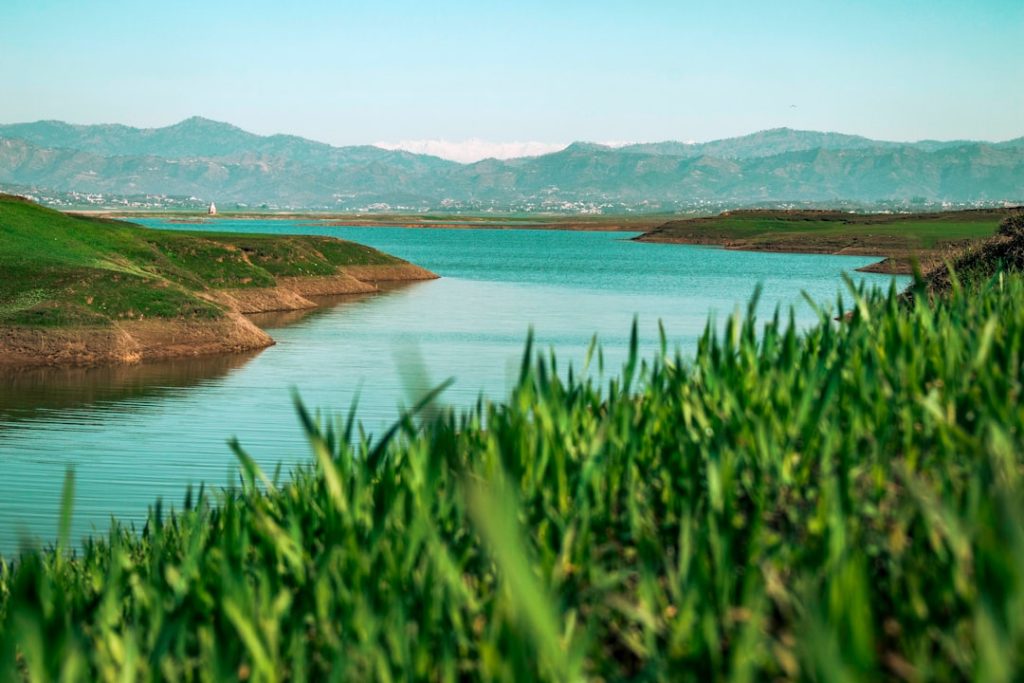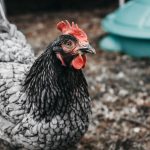Chickens are highly sensitive to heat and can suffer from heat stress, which significantly impacts their health and well-being. Rising temperatures can cause various negative effects in chickens, including decreased egg production, reduced feed intake, and potential death in extreme cases. Heat stress also increases susceptibility to diseases and weakens overall immune function.
High temperatures often cause chickens to pant excessively in an attempt to cool down, leading to dehydration and electrolyte imbalances. Understanding the impact of heat on chickens is essential for owners to implement proactive measures to mitigate its effects. Recognizing the signs of heat stress in chickens is crucial.
These signs can include panting, lethargy, reduced egg production, and sudden death. By understanding heat’s impact on chickens and identifying heat stress symptoms, owners can take appropriate steps to ensure their flock’s well-being during hot weather.
Table of Contents
- 1 Providing shade and ventilation for chickens
- 2 Offering cool treats and snacks for chickens
- 3 Using misters and fans to cool the chicken coop
- 4 Adjusting feeding and watering schedules for hot days
- 5 Monitoring chicken behavior and health during hot weather
- 6 Implementing emergency measures for extreme heat situations
- 7 FAQs
Key Takeaways
- Heat stress can have a significant impact on chickens, leading to decreased egg production, poor growth, and even death.
- Providing shade and proper ventilation in the chicken coop is essential to help chickens regulate their body temperature.
- Offering cool treats and snacks, such as frozen fruits and vegetables, can help chickens stay hydrated and cool during hot weather.
- Using misters and fans in the chicken coop can help lower the temperature and create a more comfortable environment for the chickens.
- Adjusting feeding and watering schedules to cooler times of the day can help prevent heat stress in chickens.
Providing shade and ventilation for chickens
Shade and Ventilation in the Coop
One of the most effective ways to help chickens cope with hot weather is by providing ample shade and ventilation in their living environment. This can be achieved by positioning the chicken coop in a shaded area or by creating artificial shade using tarps or umbrellas. Additionally, ensuring that the coop is well-ventilated with adequate airflow can help to reduce the temperature inside the coop and prevent heat buildup.
Good Ventilation is Key
Good ventilation can be achieved by installing windows, vents, or fans to promote air circulation. This is essential in preventing heat stress and creating a comfortable living environment for chickens.
Shaded Areas in the Chicken Run
In addition to providing shade and ventilation in the coop, it’s important to offer shaded areas in the chicken run or outdoor space where the chickens can escape the direct sun. This can be achieved by planting trees or shrubs, or by setting up temporary shelters such as awnings or portable shade structures.
By providing ample shade and ventilation for chickens, owners can help to minimize the impact of heat stress and create a more comfortable living environment for their flock.
Offering cool treats and snacks for chickens

During hot weather, it’s important to offer chickens cool treats and snacks to help them stay hydrated and cool down. This can include providing frozen or chilled fruits and vegetables such as watermelon, cucumbers, or berries, which not only provide hydration but also offer a refreshing treat for the chickens. Additionally, offering frozen treats such as ice cubes or frozen yogurt can help to lower the body temperature of the chickens and provide relief from the heat.
In addition to cool treats, it’s important to ensure that chickens have access to fresh, clean water at all times. This may involve providing multiple water sources in the coop and run, as well as regularly checking and refilling water containers to prevent dehydration. By offering cool treats and snacks, along with ample access to fresh water, chicken owners can help their flock stay hydrated and comfortable during hot weather.
Using misters and fans to cool the chicken coop
Another effective way to help chickens cope with hot weather is by using misters and fans to cool down the chicken coop. Misters can be installed in the coop or run to create a fine spray of water that helps to lower the ambient temperature and provide relief from the heat. Additionally, fans can be used to promote air circulation and reduce the temperature inside the coop.
By combining misters and fans, chicken owners can create a more comfortable living environment for their flock during hot weather. It’s important to note that misters and fans should be used with caution to prevent excessive moisture buildup, which can lead to damp bedding and an increased risk of respiratory issues for the chickens. Additionally, it’s important to regularly clean and maintain misters and fans to ensure they are functioning properly and not posing any health risks to the flock.
By using misters and fans strategically, chicken owners can help to mitigate the impact of heat stress and create a cooler, more comfortable environment for their chickens.
Adjusting feeding and watering schedules for hot days
During hot weather, it’s important to adjust feeding and watering schedules for chickens to ensure they are adequately nourished and hydrated. This may involve offering smaller, more frequent meals throughout the day to encourage feed intake without overloading the chickens’ digestive systems. Additionally, it’s important to avoid feeding heavy or high-protein meals during hot weather, as these can increase metabolic heat production and contribute to heat stress.
In terms of watering schedules, it’s important to provide ample access to fresh water throughout the day, as chickens may drink more frequently during hot weather to stay hydrated. This may involve checking water containers regularly and refilling them as needed, as well as offering water sources in shaded areas to encourage drinking. By adjusting feeding and watering schedules for hot days, chicken owners can help their flock stay nourished and hydrated while minimizing the impact of heat stress.
Monitoring chicken behavior and health during hot weather

Monitoring Chicken Behavior and Health
During hot weather, it’s crucial to keep a close eye on your chickens’ behavior and health to detect any signs of heat stress or other issues.
Identifying Signs of Heat Stress
Observe your chickens for signs of panting, lethargy, reduced activity, or changes in egg production. These can be indicative of heat stress or other health problems.
Regular Health Checks
Regularly check on your chickens’ overall health, including their body condition, hydration levels, and respiratory function. This will help you identify any potential issues early on.
Monitoring Temperature and Adjusting Cooling Strategies
Use thermometers or other monitoring devices to regularly assess the temperature inside the coop and run. This will help you gauge the effectiveness of your cooling strategies and make adjustments as needed to ensure a comfortable living environment for your flock. By monitoring chicken behavior and health during hot weather, you can proactively address any issues that arise and ensure the well-being of your flock.
Implementing emergency measures for extreme heat situations
In extreme heat situations, it may be necessary to implement emergency measures to ensure the safety and well-being of the chickens. This can include relocating the coop to a cooler area, such as a shaded barn or garage, or setting up temporary cooling solutions such as portable air conditioners or evaporative coolers. Additionally, providing additional water sources and electrolyte supplements can help to prevent dehydration and electrolyte imbalances in extreme heat.
Furthermore, it’s important to be prepared for power outages or other emergencies that may impact the chickens’ access to cooling resources. This may involve having backup generators or alternative cooling methods on hand to ensure that the chickens are able to stay comfortable and safe during extreme heat events. By implementing emergency measures for extreme heat situations, chicken owners can help to protect their flock from the potentially devastating effects of heat stress.
In conclusion, understanding the impact of heat on chickens is crucial for ensuring the well-being of a flock during hot weather. By providing shade and ventilation, offering cool treats and snacks, using misters and fans, adjusting feeding and watering schedules, monitoring behavior and health, and implementing emergency measures when necessary, chicken owners can help their flock cope with hot weather while minimizing the risk of heat stress-related issues. With proactive care and attention, chickens can thrive even in the hottest of conditions.
If you’re looking for more tips on caring for poultry, you might be interested in this article on how to care for goslings. It’s important to keep all of your feathered friends comfortable, whether it’s keeping chickens cool on hot days or ensuring goslings are well cared for. Check out Poultry Wizard for more helpful advice on poultry care.
FAQs
What are some signs that chickens are overheated?
Some signs that chickens are overheated include panting, holding their wings away from their bodies, and reduced egg production.
How can I keep my chickens cool on hot days?
You can keep your chickens cool on hot days by providing plenty of shade, ensuring they have access to fresh, cool water at all times, and using fans or misters to create a cooling breeze.
What are some ways to provide shade for chickens?
You can provide shade for chickens by using natural shade from trees or shrubs, setting up tarps or umbrellas in their outdoor area, or creating a covered area in their coop or run.
How often should I check on my chickens during hot weather?
During hot weather, it’s important to check on your chickens frequently, at least a few times a day, to ensure they have enough water, are not showing signs of overheating, and are comfortable in their environment.
Can I give my chickens frozen treats to help keep them cool?
Yes, you can give your chickens frozen treats such as frozen fruits or vegetables, or even frozen blocks of water with treats inside, to help keep them cool on hot days.

Meet Walter, the feathered-friend fanatic of Florida! Nestled in the sunshine state, Walter struts through life with his feathered companions, clucking his way to happiness. With a coop that’s fancier than a five-star hotel, he’s the Don Juan of the chicken world. When he’s not teaching his hens to do the cha-cha, you’ll find him in a heated debate with his prized rooster, Sir Clucks-a-Lot. Walter’s poultry passion is no yolk; he’s the sunny-side-up guy you never knew you needed in your flock of friends!
Meet Walter, the feathered-friend fanatic of Florida! Nestled in the sunshine state, Walter struts through life with his feathered companions, clucking his way to happiness. With a coop that’s fancier than a five-star hotel, he’s the Don Juan of the chicken world. When he’s not teaching his hens to do the cha-cha, you’ll find him in a heated debate with his prized rooster, Sir Clucks-a-Lot. Walter’s poultry passion is no yolk; he’s the sunny-side-up guy you never knew you needed in your flock of friends!







